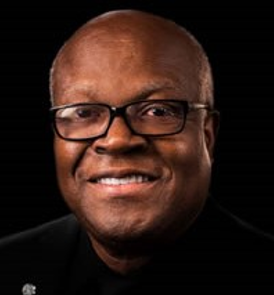Fifty state- and 2,800 local health agencies enforce public health laws and deliver COVID-19 preventive and treatment services to people who live in those places. Public health agencies serve residents of American Indian lands, U.S. territories like Puerto Rico, cities, and counties. During 2020 – 2023, the U.S. Centers for Disease Control and Prevention (CDC), the Georgia State Health Department, and the Dekalb County Health Department (my local health agency) each provided “guidance procedures and protocols” on their websites. The guidance told us what to do to stop the spread of COVID-19, avoid severe disease, hospitalizations, and deaths due to COVID-19. But the guidance did not tell community health workers and clinicians in local settings how to deliver and use those services to save lives. Life-saving services include tight-fitting N-95 masks, all recommended doses of primary and booster COVID-19 vaccines, tests for early diagnosis of SARS-CoV-2 infection, Paxlovid and other antiviral medicines for treatment of severe COVID-19, and effective clinical care for chronic medical conditions that contribute to excess COVID-19 deaths. The what-to-do guidance did not tell people how to get or use COVID-19 services, why they should use them, and what the rewards of using those services would be for the user.
Three important obstacles to preventing severe COVID-19 disease that leads to hospitalizations and excess deaths are: 1) no trusted guidance on how to effectively deliver COVID-19 services to people in a community, 2) no psychic rewards that motivate U.S. residents to work together to achieve best results for everyone, everywhere, as a shared public benefit; and 3) not enough community health workers who directly deliver routine clinical care to people in their homes and community settings.
State and local health department staff and community health workers need trusted, how-to guidance (checklists or standing orders) in addition to what-to-do guidance to prevent excess COVID-19 deaths. Those local workers can work with government and private agencies to develop and use checklists or standing orders on how to deliver timely COVID-19 services to people who need them most urgently. Potential partner agencies include CDC; Association of State and Territorial Health Officials; Council of State and Territorial Epidemiologists; Association of Public Health Laboratories; Advisory Committee on Immunization Practices; Associations of Medical Practitioners; manufacturers and distributors of diagnostic tests, medications, and vaccines; and community-based charities.
Cash incentives reward people who get vaccinated, stop smoking, and start other healthy behaviors. State, and local health agencies can work with academic researchers to find and use psychic rewards that help politicians, public officials, advocates for different public health programs, and individual citizens to work together toward equal opportunity to survive COVID-19 for everyone, everywhere, regardless of race, ethnicity, gender, religion, ideology, and other social or political affiliation.
The COVID Crisis Group (CCG) said that the U.S. spent more money to accomplish less than other rich countries did because we failed to apply effective actions that worked better in other countries. For example, use of more community health workers who regularly deliver routine clinical care to people in homes and community settings. State and local health agencies can work with federally qualified health centers, home care service providers, doctors’ offices, and health insurance payers to recruit, train, deploy and reward more community health workers.
The U.S. reported over one million deaths due to COVID-19 from January 11, 2020 – May 20, 2023. Deaths per 100,000 population increased from 106.5 in 2020 to 125.6 in 2021, then decreased by 55% to 56.3 in 2022 (provisional data through April 22, 2023, as of May 07, 2023).The 55% decrease in COVID-10 death rate from 2021 to 2022 indicated some success of actions taken by families, medical care providers, private businesses, community-based charities, state and local health agencies. We know we can do better in the future because we have done better in the past. During 1946 – 2020, U.S. public health history revealed successes in preventing excess deaths and controlling the spread of infectious diseases, such as malaria, smallpox, polio, influenza, HIV/AIDS, Ebola virus disease, and Zika virus disease in the United States.
If state and local health agencies take three actions, then we can expect fewer excess deaths from COVID-19 or from the next epidemic infectious disease the nation must prevent and control. The three actions are: 1) develop and use trusted guidance (checklists or standing orders) on how to deliver COVID-19 services to people in homes and community settings; 2) discover and use psychic rewards for pandemic responders to work together to serve everyone, everywhere, with equal opportunity to survive COVID-19; and 3) train, equip, deploy, and reward more community health workers who directly deliver routine chronic disease services.
_____________________________________________________________________________________________________________

He served as chief science officer for the CDC COVID-19 Health Equity Task Force from November 2021 – February 2022; he conducted epidemiologic studies of COVID-19 and coauthored seven scientific articles published in peer-reviewed journals. Since 2016, he serves on the Editorial Board of the Journal of Public Health Management and Practice as Consulting Editor for Infectious Diseases.
He is a naturalized U.S. citizen, an African American immigrant from a poor South American country; he has lived in the U.S. for 51 of his 72 years of life, in Washington, DC, suburban Maryland, Rochester, and Schenectady, New York. He has two adult children and two grandchildren; he and his wife have lived in Atlanta, Georgia for 34 years.






